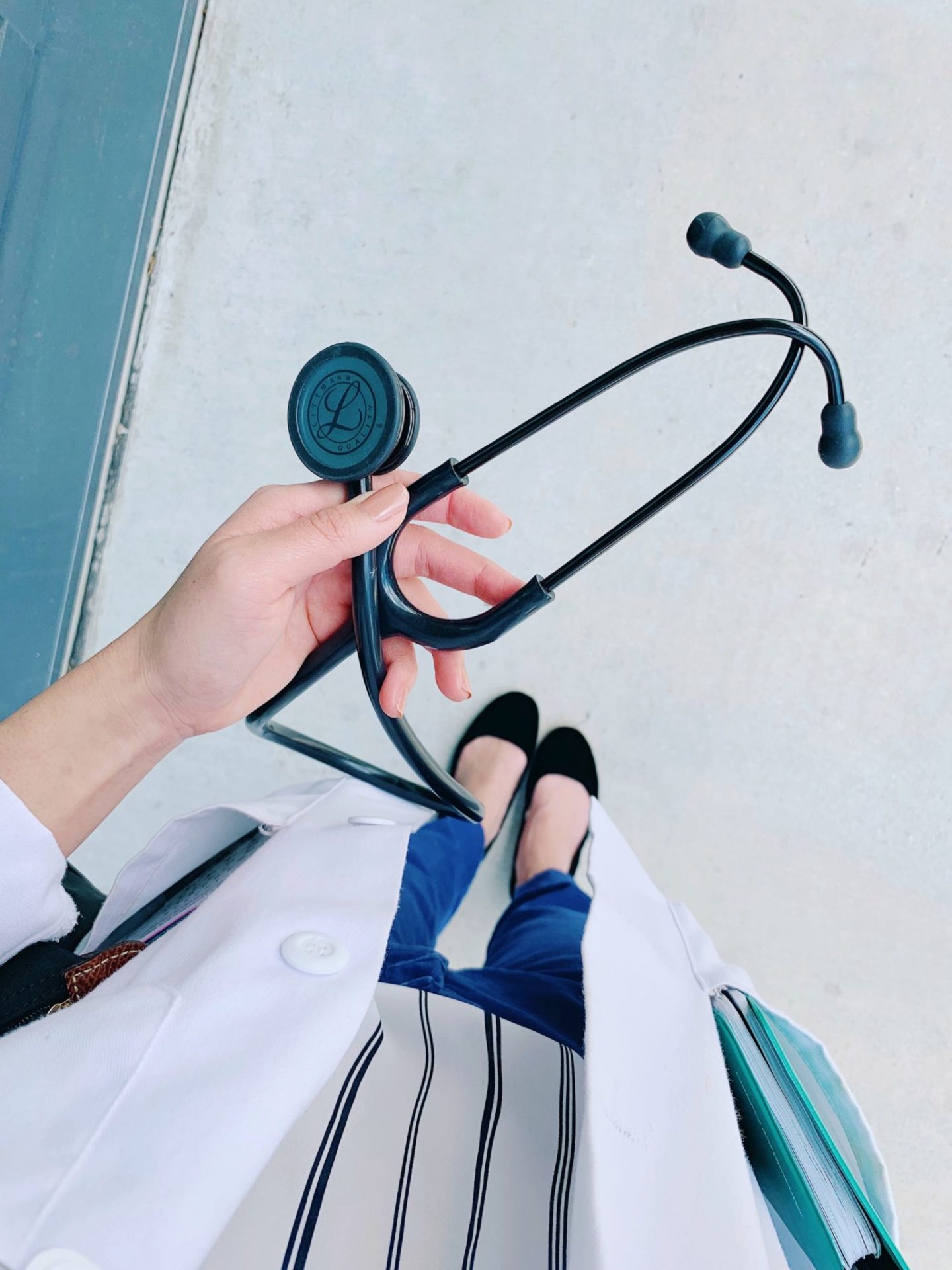
Hey y’all! As promised, I’m answering a few of the questions I received from my Instagram story! There were a bunch of great ones, mostly regarding the pre-med journey and medical school! Let me know if you like this feature! 🙂
I’m interested in becoming a doctor and want to know, is medical school hard?
Not to discourage you, but of course, it is!! However, the difficulty of a journey should never be a limiting factor when you’re pursuing something you’re passionate about! When figuring out if medicine is right for you, make sure you’re honest in your pursuit. Know that being a doctor is not about status, money, or success. It is about having a true passion for helping others. You will have to sacrifice A LOT throughout this journey, and you need to be sure that it will be worth it to YOU!
What do you want to pursue in medicine?
I’m still deciding, but I’m particularly interested in a field that combines technical skills, creativity, and a strong patient-provider relationship. My ideal specialty would be a surgical subspecialty where I have continuity care with my patients!
What’s the best active learning strategies for long-term retention?
I highly recommend using spaced-repetition with flashcard apps like Anki or Quizlet. Do these flashcards every. single. day. Also, do as many practice questions as possible. These two things have been proven to help with long-term retention!
What do you like to do to de-stress?
Simple things — Yoga. Music. Workout. Shopping. Pamper myself. Vent to/spend time with my support system. Unplug from my work. Practice gratitude. Reframe my mindset of expectations, wants, needs, etc.
How do you stay focus?
#1: Do one thing at a time. Nothing distracts us more than trying to do multiple things at once. Make a list of things you need to get done, choose what you’re going to do now, and focus on just that. If your mind wanders to think about something you need to do, add it to your list and don’t think about it until you’re finished with the task you’re working on!
#2: Eliminate distractions. Leave your phone in another room while you’re studying! Or if you have it next to you, disable the push notifications for all apps, silence all messaging apps, and/or put your phone on airplane mode. There are also computer apps that make certain websites completely inaccessible for a designated period of time.
#3: Others things… I personally value a solid night of sleep (7-8 hours) and a good workout. These things help me stay alert and focused on my work.
What’s your advice for making the most of a gap year?
From doing research to working a cool job, there are so many things you can do to be productive during your gap year! It really depends on what you value. Some people want to travel because it’s the last long break you’ll get. Others, like myself, will spend time boosting our med school applications. Either path is great, but I can only give you advice on what I did which I thought was a fruitful way to spend my gap years! First off, if you’re trying to boost your application, figure out what your weaknesses are. Do you lack research experience, community volunteer work, or is your MCAT weak? If you can pinpoint a weakness, spend your gap year on that! I personally retook the MCAT, worked at a hospital, volunteered in my community, and took a few online classes to boost my GPA. Other things you can do to boost your application are getting research publications, shadowing a physician, or picking up a hobby!
What factors did you consider when deciding where to apply/attend medical school?
Truthfully, my #1 factor in deciding where to apply was my chance of getting accepted. To get an idea of where I would be a competitive applicant, I used the MSAR to research average statistics (namely, GPA/MCAT) for accepted applicants at each school. I applied broadly, meaning I submitted applications to ‘safety’ schools, ‘reach’ or dream schools and those in between. Another big factor I considered when applying to medical school was the location. I didn’t apply to any mid-west schools because I knew I did not want to live there! Other less important factors included the school’s mission, its curriculum, and cost of attendance. For attendance, I mostly considered the vibes I got from the school on my interview day, student resources, community clinics, how much clinical exposure medical students get their first and second year, location, etc.
That’s all for now! Thank you all for your questions! If I didn’t get to yours, stay tuned because I’ll do another one soon! Make sure to follow me on Instagram @lilyinmedicine!